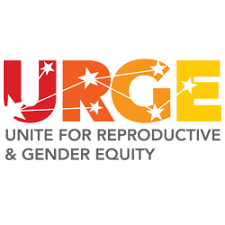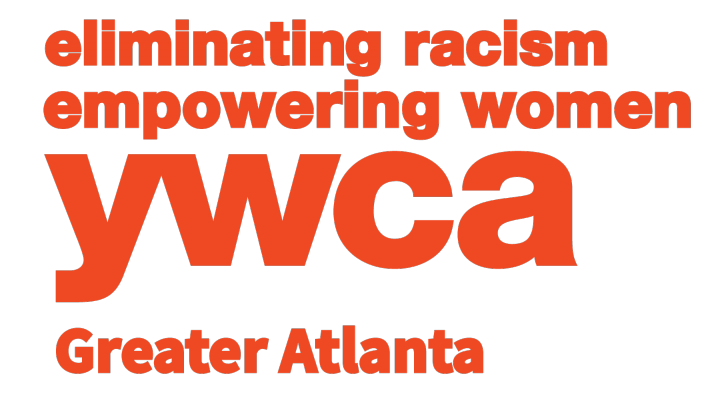Georgia Reproductive Justice Policy Agenda
The Georgia Reproductive Justice Policy Agenda is a living document reflecting the policy changes we need in our state so that ALL Georgians can make decisions around our bodies, for our families, and our communities, free from stigma, shame, or state and interpersonal violence.
This agenda captures both Amplify run campaigns that directly advance abortion access in Georgia as well as Amplify supported policy initiatives that advance Reproductive Justice (RJ) more broadly. While RJ itself is expansive and infinitely intersectional, this agenda focuses on issues being advanced by short and long-term proactive policy change and is not meant to capture work defending against bad policies. Although not comprehensive, our hope is that this agenda provides a road map for our supporters and allies, outlining active campaigns and projects that we are committed to and feel confident will move us closer to reproductive freedom.
Amplify recognizes that policy change is just one of many tools to help us along the path towards reproductive liberation. While this document focuses on leveraging legislation for change, it is situated within a broader strategy that includes organizing, education, direct service provision, narrative shift work, and the building of systems and services outside of the state.
georgia context
The need for improved access to reproductive healthcare in Georgia is great. The Georgians most impacted by these shortages are Black, Brown and Indigenous, LBGTQ, young, poor, rural, immigrants and refugees. Of particular note is that Georgia has one of the highest rates of maternal mortality in the U.S., and Black babies die at nearly twice the rate as white babies. The majority of these deaths are preventable.
Many factors influence these high rates, including:
Insurance Coverage Gaps
1 in 8
Hospital Closures
12
hospitals have closed since 2013. 18 of the 30 rural hospitals in our state are considered at risk for closure. And these closures don’t just impact rural areas. In late 2022, Atlanta Medical Center–a crucial facility for people giving birth– closed.
3x higher
The maternal mortality rate among Black birthing people is 3x higher than their white counterparts. Controlling for all other factors (like income, education, zip code, etc.), this is due to medical racism.
Compounding challenges in georgia
Abortion Bans and restrictions–such as Georgia’s six-week ban, restrictions on public insurance covering abortion care, parental notifications, state-mandated counseling, and physician-only requirements– meaning that the majority of Georgians now have to travel out of state to access abortion care or continue with their unwanted pregnancy.
Georgia’s minimum wage is set at $5.15 an hour, well below what is considered a “living wage” and far short of a “thriving wage”. Poverty, coupled with a lack of affordable health insurance options, puts healthcare out of access for many Georgians.
Georgia is only one of ten states that have not yet adopted Medicaid expansion. Fully expanding GA Medicaid under the ACA would cover 473,000 more Georgians, but Governor Kemp has refused the resources available for this. Because of this, many Georgians still don’t qualify for Medicaid but don’t make enough to afford private health insurance.
78% of Georgians do not have access to any form of paid leave. This means that many Georgians choose between a paycheck and caring for a new child or sick family member.
Georgia currently promotes abstinence-focused sex education, which is not proven to be effective. On the other hand, evidence shows that comprehensive sex education has wide-ranging positive impacts.
Georgia still incarcerates pregnant people, forcing them to give birth behind bars, harming both maternal and infant health. Recent investigations have exposed shocking human rights abuses that have resulted in infant death.
Georgia can and must do better. As illustrated above there are many opportunities for policy change to vastly improve access to life-saving and sustaining healthcare.
The Opportunity for change
in georgia
Although the path ahead will be challenging, we can win with the fight for
Reproductive Justice in Georgia and NOW is our time to double down on this essential work.
We are the majority
Georgia politicians are out of step with the will of the people. While they continue to advocate for yet more abortion restrictions and other bills that regulate our bodies and reproduction, polling in 2024 shows that the majority of Georgians support abortion access in most, if not all cases, and 4 in 5 Georgians agree that the government should not interfere with our reproductive decisions. We are the majority and can leverage our collective power for change.
now is the time to invest in long-term strategy
This is the time to double down, to invest in long-term change. It took the Right 50 years to overturn Roe, we need to make a similar investment to achieve reproductive liberation. This policy agenda is one piece of the strategy.
Change will happen locally
With Trump’s reelection and Republican control of the Senate and House, there is little probability of restoring federal abortion protections 2025-2028 and we can expect additional federal abortion restrictions. This shift in power at the federal level, means that work to advance reproductive justice must happen locally. Amplify was created for this moment and will continue to champion state and local-level policy change.
we must unite to win
The 2025 presidential election showed that siloing our issues is a recipe for failure. There is no Reproductive Justice without Economic Justice or Environmental Justice or Gender Justice. We must unite around a shared agenda that represents the intersectionality of our lives. It is in coming together, fighting for collective liberation, that we will have the people power to win.
Policy Roadmap
Amplify envisions a world where ALL Georgians can make decisions around our bodies, for our families, and our communities, free from stigma, shame, or state and interpersonal violence. These are the policies that can help us get there.

Our bodies
Change Goal: All Georgians can access safe, affordable, stigma-free abortion care. All Georgians know their rights around reproductive healthcare and are treated within a culture of support for abortion as a health care service. Any and all pregnancy decisions are normalized.
Policy Campaigns/ Legislation:
- Since 2010, the Georgia legislature has passed over 13 abortion bans and restrictions including, HB 481, which bans abortions at around 6 weeks of pregnancy and defines a fetus as a person under Georgia law.
- The RFA will repeal these abortion bans and restrictions, expand access to abortion, and enshrine fundamental protections for reproductive freedom into Georgia law.
Pregnancy Center Fraud Prevention Act:
- Anti-Abortion Centers (a.k.a Crisis Pregnancy Centers) are unlicensed and unregulated pregnancy care centers that utilize deception and manipulation to convince people not to access abortion care. Georgia has over 80 of these Fake Clinics as compared to 13 real abortion clinics.
- The Pregnancy Center Fraud Prevention Act will regulate Fake Clinics like any other business, preventing them from misleading consumers about the services they provide.
Eliminating state funding to Crisis Pregnancy Centers:
- Fake Clinics receive over $2 million from the state of Georgia every year at the same time that real healthcare providers, especially those in rural areas, go under funded.
- This legislation will repurpose this funding for real healthcare providers.
Learn more about Amplify’s Fake Clinics Suck campaign here.
Change Goal: All pregnant Georgians have access to high quality, affordable maternal healthcare and have the autonomy to make decisions about their pregnancy and childbirth experience, including where and with whom they birth. Safe, respectful, and culturally competent maternal healthcare is the expected norm and standard.
Policy and/or Campaign:
Expand Midwifery Licensure
- Despite having high maternal mortality rates and severe maternity care deserts, Georgia also maintains some of the most restrictive midwifery licensure laws in the country. Current Georgia law restricts midwifery practice to certified nurse midwives. Expanding midwifery licensure beyond certified nurse midwives is an opportunity to address the maternal mortality crisis and the severe maternity care deserts in the state by increasing access to high quality prenatal, birth, and postpartum care in community settings.
- The proposed legislation creates a pathway to licensure and legal practice for midwives trained through other educational pathways, preserves the legacy of traditional midwives, and creates a mechanism for Medicaid coverage of maternity care provided by state-licensed midwives, regardless of birth setting. Learn more here.
Change Goal: All Georgians, no matter their income, gender, or sexual orientation have access to affordable fertility care so they can create the families they want. All families experience inclusive support on their reproductive journeys as they utilize fertility care.
Policy and/or Campaign:
Fertility Justice Now
- Fertility care and other assisted reproductive technologies assist people in having children when they otherwise would not be able to. However, there are significant barriers related to a person’s socioeconomic, racial, gender and sexual orientation that negatively impacts fertility patients accessing care. This especially impacts Trans and Queer families who experience social infertility.
- SPARK and other partners in the Fertility Justice Now Campaign will be introducing legislation to expand fertility access to people facing the biggest barriers to care by mandating insurance coverage of fertility care.

Our Families
Change Goal: All Georgians have access to affordable, high-quality health insurance. Georgians are supported with the knowledge and skills to navigate and effectively utilize insurance as part of healthcare decision-making.
Policy Goal:
Medicaid Expansion
- Georgia is only one of ten states that have not yet adopted medicaid expansion. Because of this, many Georgians still don’t qualify for medicaid but don’t make enough to afford private health insurance. Georgia is the fifth leading state with the most uninsured residents.
- Expand Medicaid and closing the coverage gap for those unable to access affordable health care.
Change Goal: All Georgians have access to the time they need to care for themselves and their loved ones without risking their jobs or their paychecks.
Policy Goal:
GA Coalition for Paid Leave
- Paid family and medical leave is critical to healthy and economically stable families and communities, and yet, 78% of Georgians do not have access to any form of paid leave.
- 9to5 Georgia and the GA Coalition for Paid Leave continue to expand paid parental leave for all Georgians by expanding the “qualifying life event” to include loss of a child. The coalition is also studying the costs of statewide comprehensive paid leave to advocate for more expansive coverage.
Change Goal: Long-term state child care funding to ensure that every family who needs affordable child care can access it and that early childhood educators are adequately compensated for their skilled, essential work.
Policies:
- Many working families spend as much on child care as on rent, and yet, child care providers are being forced to shut their doors due to the state’s lack of funding and support for this vital service.
- 9to5 Georgia is working towards policy solutions for parents and child care providers including dedicated state funding for mixed-delivery child care systems, an adequately funded CAPS program, expanded access to universal pre-k, and increased reimbursement rates from the state for providers to be able to serve additional families.

Our Communities
Change Goal: Every worker in Georgia is protected against discrimination and harassment regardless of place of employment, employee classification or immigration status. Georgians know their rights and are able to advocate for themselves in their place of work.
Policy:
- Georgia is 1 of 3 states without a state-level civil rights law protecting workers against discrimination and harassment.
- 9to5 Georgia and the Respect GA Worker’s Alliance is working to pass legislation prohibiting discrimination and harassment to support workers’ equality, safety and dignity.
Change Goal: Georgia governments and healthcare systems promote equality, inclusivity and social justice for Trans and Gender Nonconforming individuals (TGNC). TGNC individuals can access inclusive reproductive healthcare as well as have the ability to change their name and gender marker on government identification free from intrusive barriers.
Policy:
- Trans and LGBTQ people are under attack in Georgia. Last legislative session, there were over 20 anti-LGBTQ bills filed attacking transgender students and attacking medical care for trans Georgians. We know that advocates will have to mobilize defense against these attacks again, but there is also proactive policy change that would provide meaningful solutions for the Trans community.
- The requirements for trans and gender expansive folks to change their name and/or gender designation on their birth certificate are very prohibitive. Currently, trans folks must provide proof of gender affirming surgery in order to change their gender on their birth certificate. In addition, in order for trans folks to change the gender marker on their drivers license, they must have an amended birth certificate. There are no gender neutral options for drivers licenses or birth certificates. The name change process is also problematic, as it requires a public announcement of the name change, which could put trans and gender expansive folks at risk.
- SPARK’s Power in a Name Campaign is a long-term organizing and advocacy campaign to affirm and uplift Trans and Non-binary folks in Georgia and remove barriers by changing the name and gender marker change policies in Georgia.
What you can do
Join us for a Virtual Roundtable on February 5, 2025
More than Ever: The Fight for Reproductive Justice in Georgia
Check out the Social Action Toolkit
Our Collaborative
The Amplify Georgia Collaborative (Amplify) is a home for collective, bold, abortion-out-loud programming, grounded in reproductive justice and rooted in the South. We do this by convening, connecting, creating opportunities for, and building the capacity of Georgia Reproductive Health, Rights, and Justice (RHRJ) organizations to ensure that all Georgians can access safe, affordable, and dignified abortion care when they need it.
Our collaborative is anchored by nine Reproductive Justice (RJ) organizations and allies: Access Reproductive Care – Southeast (ARC-Southeast), Feminist Women’s Health Center (FWHC), National Asian Pacific American Women’s Forum (NAPAWF), HEART, New Georgia Project (NGP), SisterLove, Inc., SisterSong Women of Color Reproductive Justice Collective, SPARK Reproductive Justice Now, and URGE: Unite for Reproductive and Gender Equity. All nine of these organizations are led by people of color, and we center Black, Indigenous, and other people of color (BIPOC), LGBTQ+ folks, immigrants and refugees, and young people in our constituencies and campaigns.
Amplify’s core strategy is to organize and mobilize our partners to influence local and state RJ policy and shift the narrative around abortion. We do this through collaborative, proactive, nonpartisan campaigns that provide education, produce policy wins, and build the power of communities most impacted by abortion restrictions.














